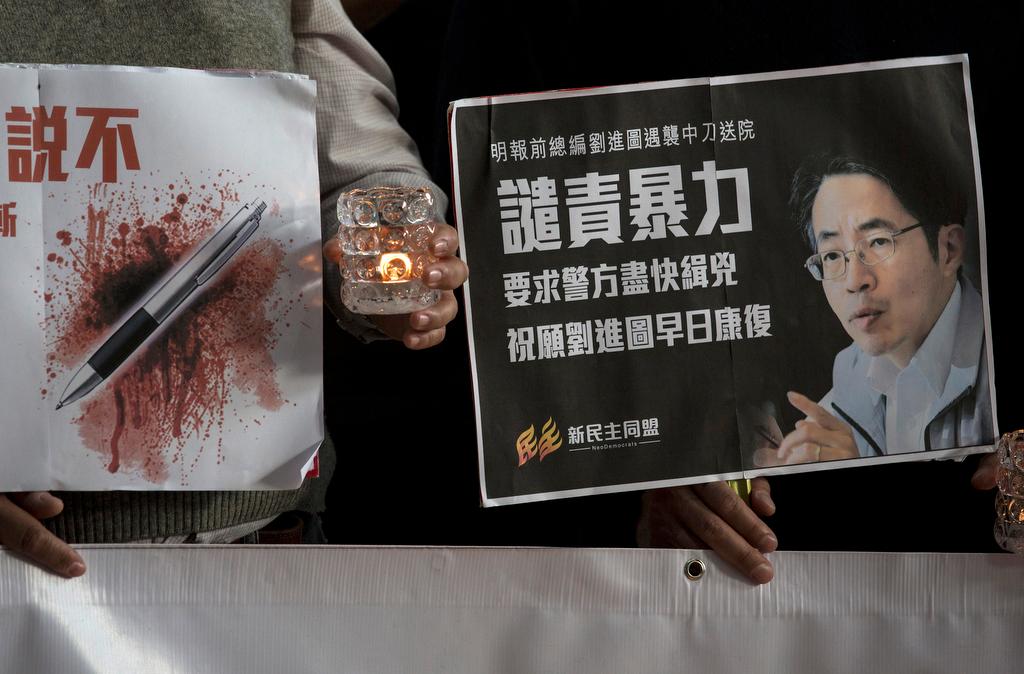Hundreds protest over sacking of Hong Kong editor
Pro-democracy activists hold a sign with an image of former chief editor of the Ming Pao daily Kevin Lau Chun-to as they attend a candlelight vigil to urge the police to solve the stabbing incident involving Lau, at a hospital in Hong Kong on Feb. 26, 2014.
Hundreds of protesters gathered Monday outside the headquarters of a Hong Kong newspaper where a respected editor was recently sacked after publishing a front-page story linked to the Panama Papers leak.
Around 300 reporters, activists and members of the public rallied over the firing of Keung Kwok-yuen, saying it was further evidence of deteriorating press freedoms in the semi-autonomous city as Beijing tightens its grip.
Keung was sacked overnight last month from investigative newspaper Ming Pao, whose former chief editor was stabbed by masked attackers in the street two years ago.
His sacking coincided with the paper publishing a front-page story linking top Hong Kong businessmen and politicians to new revelations from the Panama Papers.
The trove of documents, released in April by the International Consortium of Investigative Journalists, has exposed how Panama law firm Mossack Fonseca helped China's rich and powerful funnel their wealth into tax havens.
"The public is very concerned over press freedoms in Hong Kong. We have been doing a good job… covering a lot of news including sensitive political issues such as human rights in China," said Phyllis Tsang, head of the newspaper's staff association.
"We demand a clear explanation (from the management) on the real reasons for the firing of Mr. Keung. Was there any relation to this kind of reporting?"
Protesters sat on the ground outside Ming Pao's offices Monday afternoon.
One banner read: "They can't fire us all."
Some also held up pieces of ginger — which sounds "Keung", the editor's surname, in Cantonese.
"Hong Kong is a unique place in China where there is freedom of the press … Such freedoms could deteriorate if the bosses bow to pressure," said reader Stanley Ng, 55, an urban planner, who had joined the protest.
Lawmaker Emily Lau of the Democratic Party warned Beijing was "exerting a lot of pressure on media and many news organizations are willing to comply".
"Hong Kong people have to stick together to defend editorial independence," she said.
Reporters have said the decision to sack Keung was taken by Malaysian chief editor Chong Tien Siong, who is seen as pro-Beijing.
Chong was brought in two years ago to replace veteran investigative journalist Kevin Lau as chief editor, triggering protests by newspaper staff.
Soon after, Lau was stabbed in broad daylight leaving him severely wounded, sparking major concerns over reporting freedoms.
We want to hear your feedback so we can keep improving our website, theworld.org. Please fill out this quick survey and let us know your thoughts (your answers will be anonymous). Thanks for your time!
